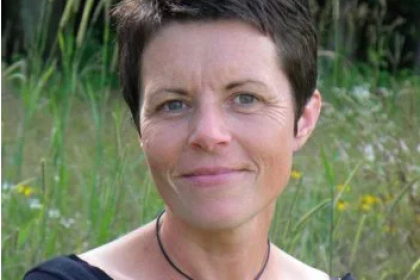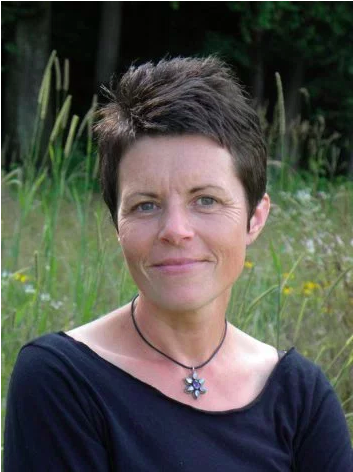
This post was originally published on the American Planning Association Food Systems Planning Interest Group’s website.
 Mary Chicoine Praus is a Land Use Planner at Franklin Regional Council of Governments in Greenfield, Massachusetts. The organization is the co-author of the Massachusetts Local Food Action Plan and has undertaken various regional food system planning efforts.
Mary Chicoine Praus is a Land Use Planner at Franklin Regional Council of Governments in Greenfield, Massachusetts. The organization is the co-author of the Massachusetts Local Food Action Plan and has undertaken various regional food system planning efforts.
This interview was conducted via email by Erica Campbell of the Vermont Farm to Plate Network, and member of the APA-FIG Leadership Team.
What is your current position (include your title and name of organization)?
I am a Land Use Planner at the Franklin Regional Council of Governments, the regional planning agency for Franklin County. Our agency is located in Greenfield, Massachusetts.
How long have you held this position?
Five and a half years
What do you enjoy about your work?
I like being able to focus on several areas of interest, including farm and food system planning, green infrastructure and urban trees.
Similarly, what do you find challenging about your work?
I find it challenging to have many projects at one time and to have enough time to devote to them all, especially those as complex and intricate as our food system.
What areas of the food system do you focus on in your work?
I’ve focused on several areas: statewide comprehensive food system planning, regional farm and food planning for Franklin County with a focus on land and food access, and community food assessments for individual towns. We’ve completed the Franklin County Farm and Food System Project, focused on increased food access and food production, and co-authored the Massachusetts Local Food Action Plan.
In the work that you perform, where does addressing food systems issues fit in? How has this changed over time?
Food system planning per se was not a stated focus of our agency five years ago. Now we are regularly working on food system related projects at several scales. Even if the primary goal of a planning project is not related to the food system, my colleagues and I are often thinking about the food system when we are working on open space plans, master plans, or transportation planning. I think there is more focus on social equity and food access, and more awareness of the need for access to affordable farmland, which permeates many areas of planning at the FRCOG.
Do you consider yourself a food systems planner?
Although my official title is Land Use Planner, I do also think of myself as a food system planner.
What is the biggest food systems planning-related hurdle your community faced in recent years and how was it dealt with?
I think funding is one of the biggest hurdles both for our organization and for many organizations and businesses in our region. After successfully obtaining funding for a couple of significant food system projects at the FRCOG, it has become more difficult to find funding. It has also become more competitive over time, especially for food system planning projects.
Do you have any advice for someone entering the food systems planning field?
Ground your planning work in the real world – and do your homework to understand what work has already been done before hand. Be respectful of farmers and food processors – value their time and their real world experience. Don’t ask farmers and food processors to participate in your project unless there is real value to them for doing so.
What makes you successful in your work? What skills do you use the most in your food systems planning related work?
I think being respectful of those already doing the work in the food system helps me to be more effective. The day-to-day skills I use the most are conducting research, analysis, and GIS mapping, creating graphics and infographics, and doing outreach to farmers and others in the food system community.




